“When you die, there is nothing.”
The mind-body dilemma is a common topic through Philosophy and Religious Studies. Dualism, the belief that the mind/spirit/soul is a separate substance from the physical body, is a concept that will regularly come up for first year university students, particularly studying Descartes, with it being famously criticized as a “ghost in the machine” by Gilbert Ryle (The Concept of Mind). This idea, of a ghost operating a machine, is something that gets explored, quite literally, in The Coffin by Phil Hester, Mike Huddleston, and Gary Peterson.
Blending elements of horror and science fiction, The Coffin follows a stereotypical cold, driven scientist, Dr. Ashar Ahmad, as he tries to overcome death through science. His hubris, disregard for what makes life worth living, and his work are cut short by his employer, looking to take over his research and extend his own life, forcing him to enter his prototype human Coffin, a machine meant to capture the soul and provide life after death. Wacky hijinks ensue.
While the action and horror elements of the story are definitely at the forefront, it still raises questions of what happens after death—suggesting a persistence through a shared experience of souls continuing on afterwards and the existence of a kind of Hell—as well as how lack of a physical body could have a change on how the soul perceives existence. It’s somewhat subtle, but without the chemical pressures of emotions, Ahmad changes his outlook on life when trapped in the machine. It’s an interesting inversion that he someone becomes more humane after losing his humanity.
The early period Mike Huddleston artwork here is a treat. Especially since the series was produced in black and white. There are a lot of inky shadows and solid blacks through overlapping panels and interesting layouts that pull the eye in to the details of the technology and the stranger fantastical elements. It works very well for the horror aspects, making the cold, inhuman nature of the Coffin machines creepier especially as Ahmad begins experimenting with the flexibility of its shape. In some ways, the art, tone, and pacing reminds me of that classic issue of Saga of the Swamp Thing, “The Anatomy Lesson”, with an evil businessman messing about with a scientist and science that he doesn’t understand.
There’s also a level of experimentation to Gary Peterson’s letters, opting for some unique word balloons to represent the mechanical voice of the Coffin suits. Peterson’s narration boxes and regular word balloons are also quite interesting, with a size and spacing a bit smaller than other books. It lends a kind of claustrophobia to the story, like being confined within one of those Coffin suits.
The Coffin by Hester, Huddleston, and Peterson is first and foremost a sci-fi/horror tale of the tragedy of a man brought down by his potential overreach into life after death, with an evil organization employing him and a quest for revenge for his family, but it still takes the time to raise important philosophical questions about the nature of man. It’s an interesting spin on the idea of a man becoming a machine.
The Coffin
Writer: Phil Hester
Artist: Mike Huddleston
Letterer: Gary Peterson
Publisher: Oni Press (original) | IDW (10th Anniversary Edition)
The legendary cult classic returns to print in this deluxe hardcover Tenth Anniversary Edition! Dr. Ashar Ahmad is a brilliant but heartless scientist intent on proving the physical existence of the soul, going as far as to create an impenetrable cybernetic skin that will trap the human soul after the body within has died — a walking coffin. Only when a dying Ahmad is encased in one of his prototypes does he realize the value if the life he has wasted. A desperate race to reclaim his technology from an evil corporate overlord and save the life of the daughter he once disavowed force him to become the man he never was in life.
Release Date: September 16, 2001 (original) | November 16, 2010 (10th Anniversary Edition)
Read last week’s addition to the Classic Comic Compendium!


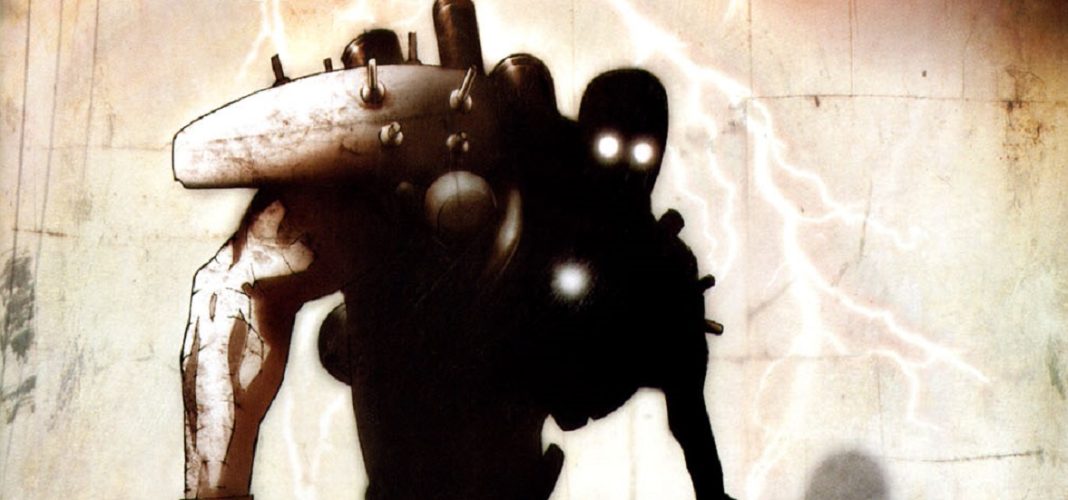
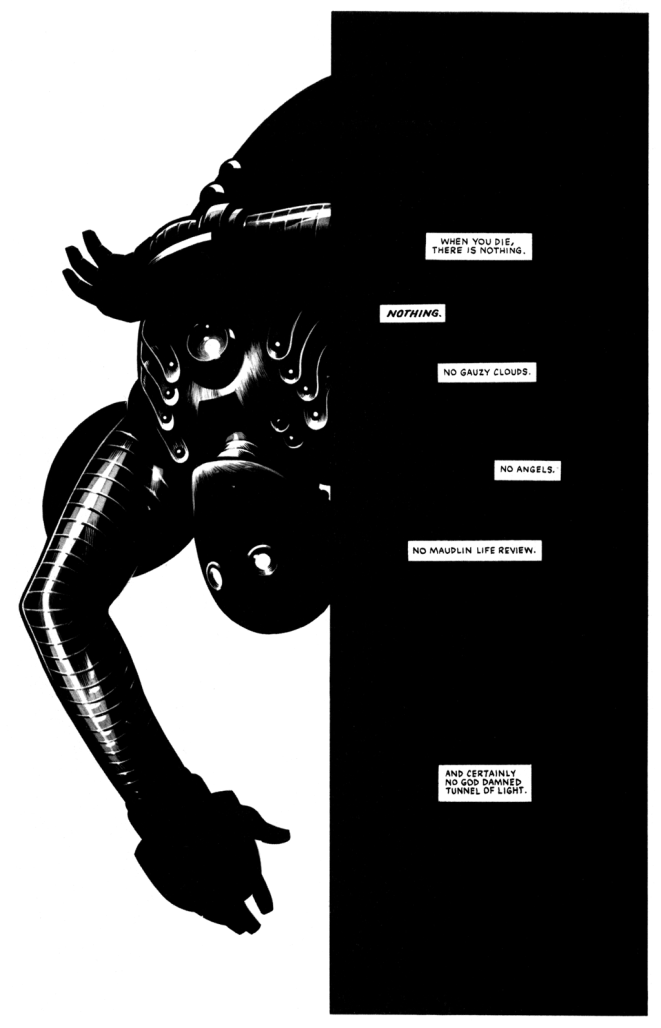
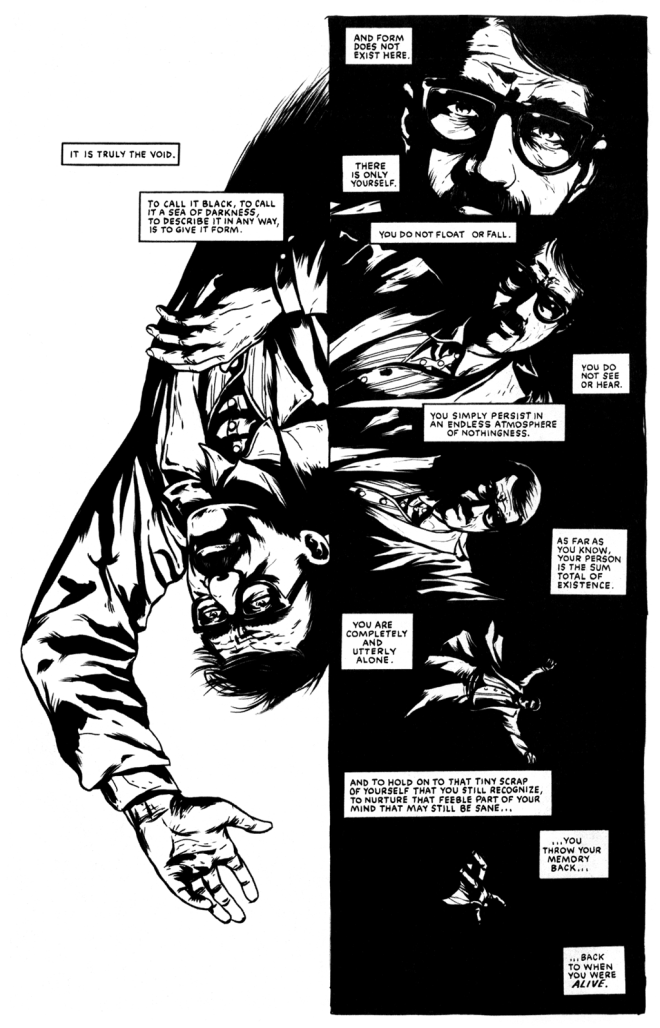
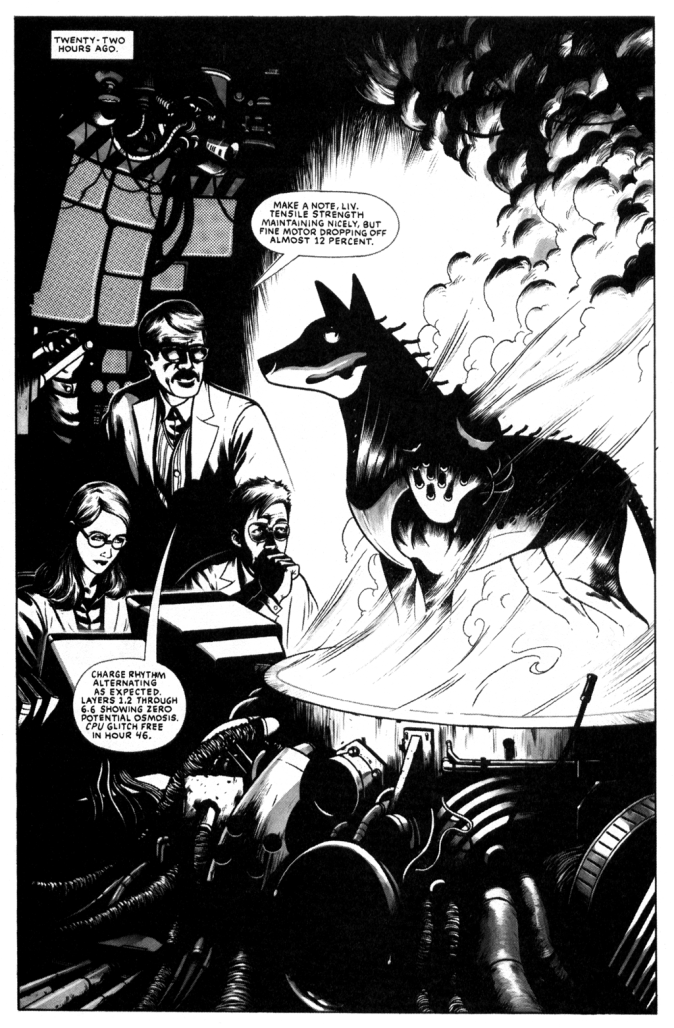
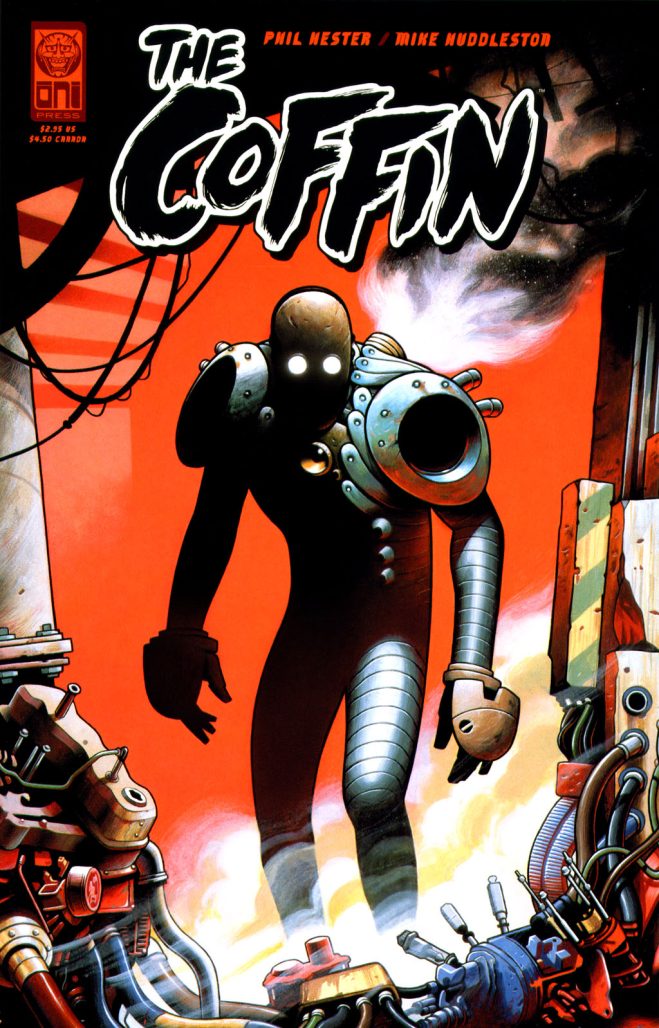



Wizard Magazine loved this comic. I haven’t thought about it in 20 years, good pull.
Comments are closed.